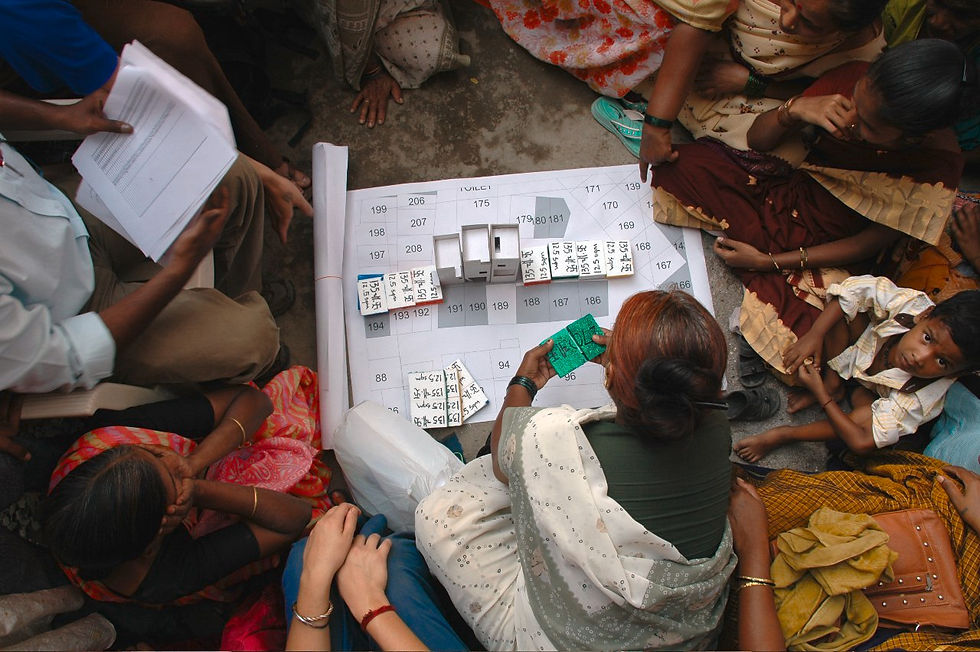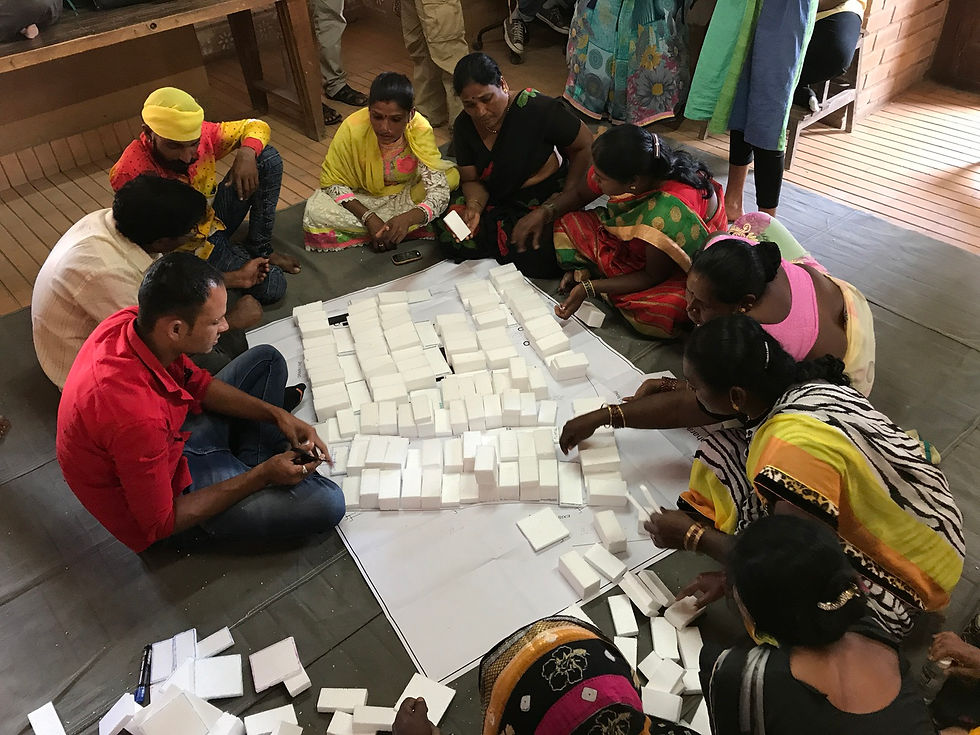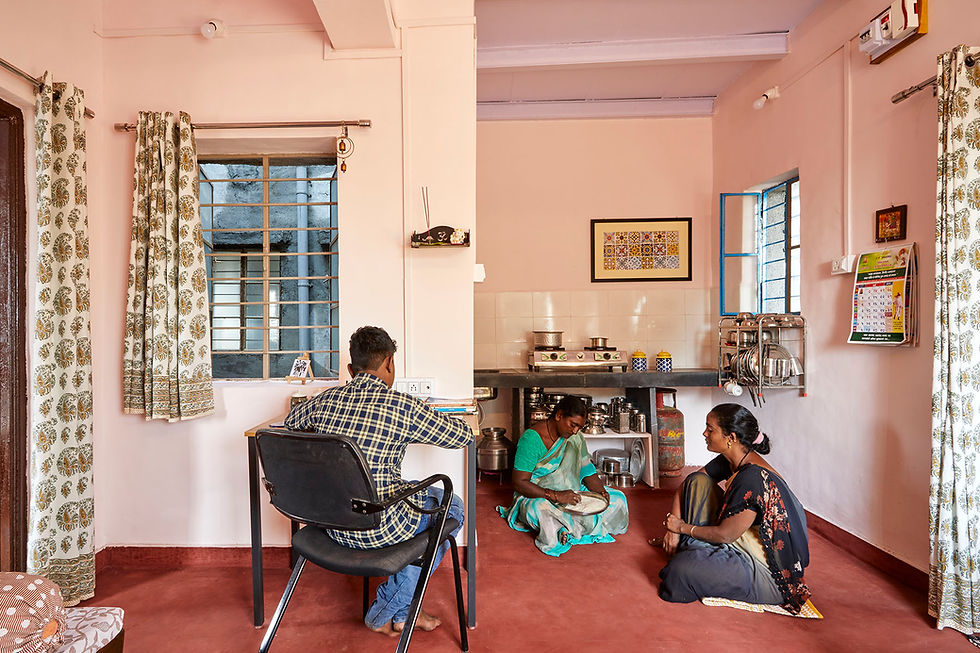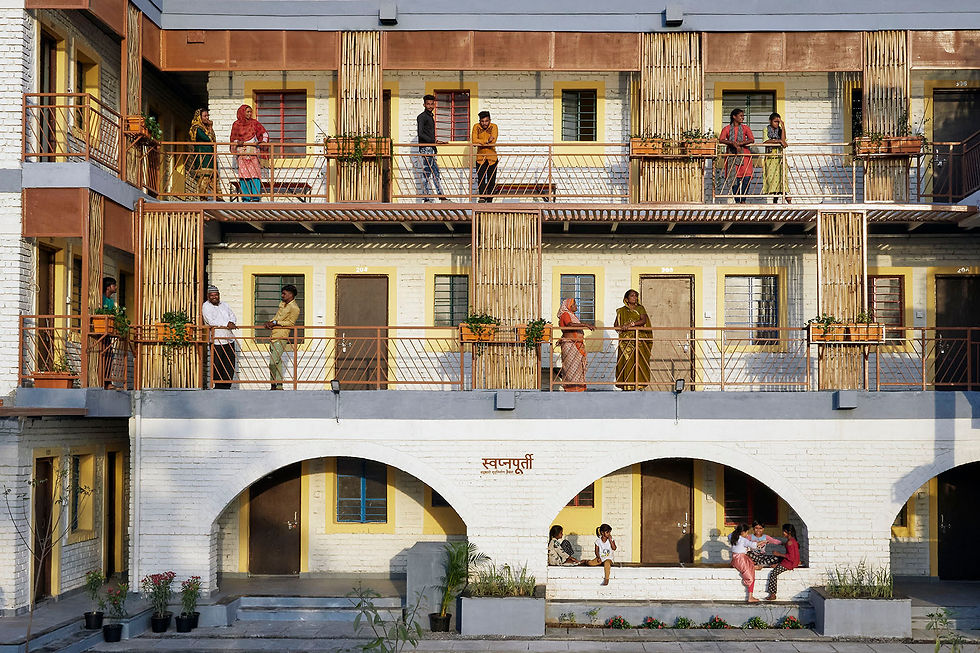How Communities Build Homes, Innovatively?
- Mar 14, 2024
- 2 min read
Updated: Jul 16, 2025
India’s informal settlements are growing faster than its cities can cope. Born out of housing shortage, migration, and poor planning, sprawling slums face challenges of infrastructure, water, and health. From Sambalpur’s grassroots clinics to edible rooftops in Ahmednagar, communities are stepping in where the system falls short. But can these pockets of resilience become a solution for the deepening crisis of informal urban growth?

In Chennai, Coimbatore and Madurai, untenable slums increased by 63% between 2014 and 2018, based on a comparative analysis of the Tamil Nadu Urban Habitat Development Board’s data. This surge is being witnessed across Indian cities due to intense urban migration, limited affordable housing and inadequate urban planning.
Rapid industrialisation in Rourkela and Angul has drawn migrant workers, leading to informal settlements around industrial zones. Despite efforts by the Odisha government’s Jaga Mission to improve slums, a study found that 84 slums in Bhubaneswar lacked access to safe drinking water. It highlighted significant water shortages, contamination, poor sanitation, and dysfunctional infrastructure.
Such initiatives have empowered residents to engage in the redevelopment of their homes, fostering ownership, and community cohesion.
Poor living conditions and the lack of basic amenities heighten health and socio-economic vulnerabilities in such communities. A study by Andhra University in Visakhapatnam’s slums found that 76% of women suffer from migraines, while 52% have thyroid issues, 48% have hypertension, and 42% have diabetes. In Sambalpur, Dr. Gitarani Choubey and Dr. Sanjeeb Mishra from VIMSAR initiated a free clinic for Samleipadar residents due to inaccessibility in healthcare.
Climate change exacerbates these problems, particularly affecting women in dense, informal settlements. In Coimbatore and Chennai, GIZ is transforming ICDS buildings to mitigate heat stress for domestic workers, teachers, and students. Meanwhile, the Mahila Housing Trust (MHT) Ahmedabad is involving low-income women in installing modular roofing systems for climate-resilient housing. To promote reading among children, the Cuttack MC plans to establish 10 prefab smart libraries in slums, powered by solar panels for self-sustainability.



Comments